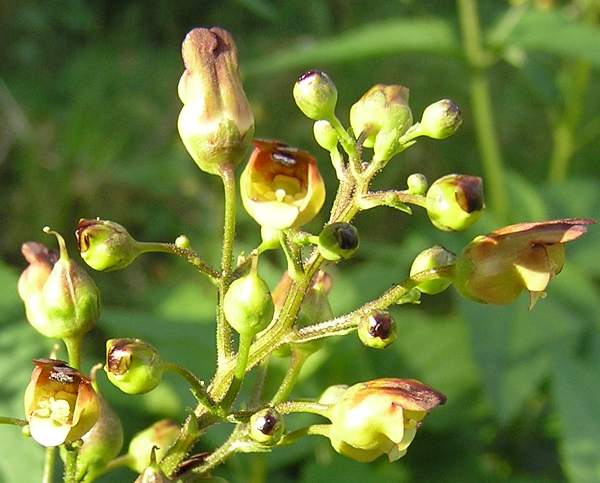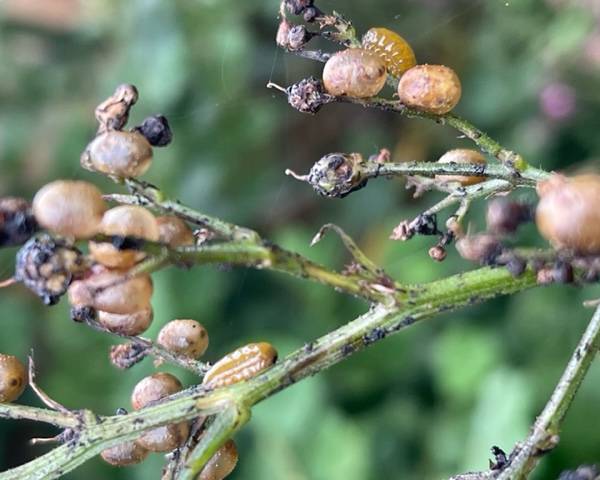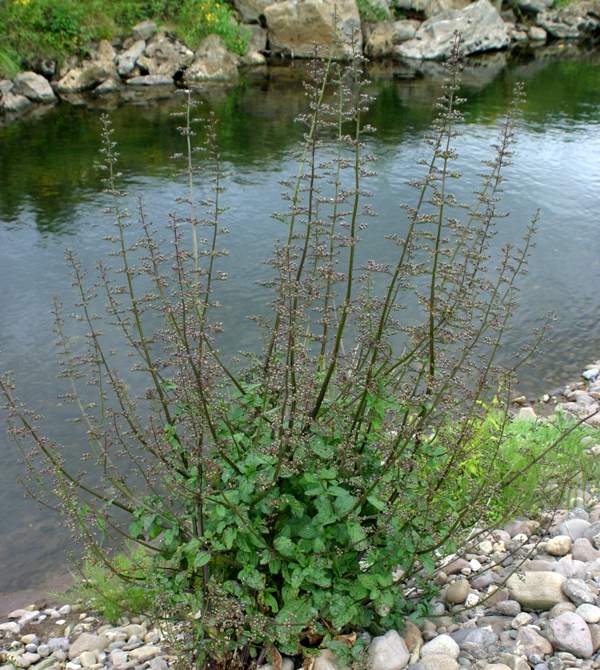Scrophularia nodosa - Common Figwort
Phylum: Magnoliophyta - Class: Equisetopsida - Order: Lamiales - Family: Scrophulariaceae

This unspectacular wildflower is sometimes confused with Deadly Nightshade, but at typically only 8mm across the flowers of Common Figwort are only about a third the size of those of Deadly Nightshade. The stem has a square cross-section, which also helps distinguish it from Deadly Nightshade (whose stems are round).
Figwort is the foodplant of a little greyish beetle known as the Figwort Weevil, Cionus scrophulariae. Its larvae look like tiny slugs, while the pupae are much duller. (This is one of several weevil species that feed on figworts, mulleins and related species.)

Above: larvae and pupae of the Figwort Weevil. (Picture kindly contributed by Ashley Warner.)
Distribution
Common Figwort is found throughout Britain and Ireland except for the far north.

Habitat and Blooming Times
This tall plant of shaded hedgerows and woods prefers damp soil. The first flowers appear in early June, and figworts can be found blooming as late as September in well-shaded places. In the riverside picture above, taken in early June, the dull purple flowers are just opening.
Etymology
The genus was named Scrophularia in the belief that figworts had the power to cure scrofula, a strain of bovine tuberculosis that was particularly prevalent in the 18th century. The specific epithet nodosa is nothing to do with nodding; it comes from Latin and refers to the presence of conspicuous nodes.
Similar species
The unwinged square stems of this plant help to distinguish it from the otherwise very similar Water Figwort, Scrophularia auriculata, which has an overall redder flower. Just as it sounds, the specific epithet nodosa refers to the conspicuous nodes on the stems of this wildflower.
These specimens were photographed in Wales in July.
Sue Parker's latest ebook is a revised and enlarged edition of Wild Orchids in The Burren. Full details here...
Buy it for just £5.95 on Amazon...
Please Help Us: If you have found this information interesting and useful, please consider helping to keep First Nature online by making a small donation towards the web hosting and internet costs.
Any donations over and above the essential running costs will help support the conservation work of Plantlife, the Rivers Trust and charitable botanic gardens - as do author royalties and publisher proceeds from books by Pat and Sue.

